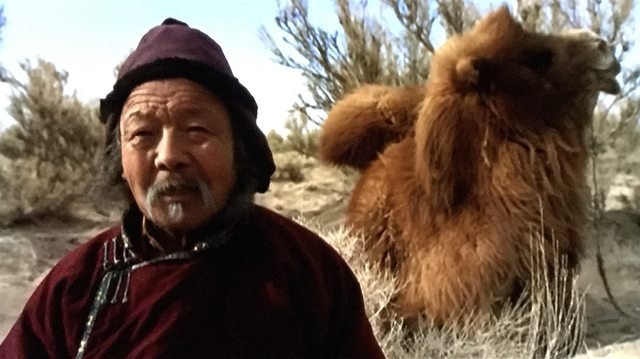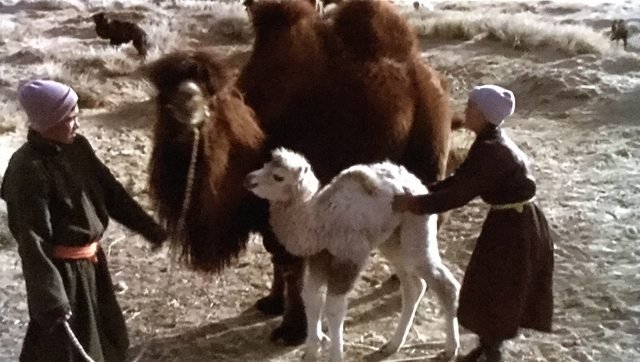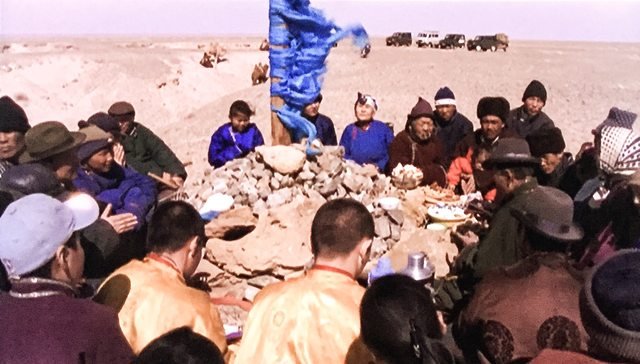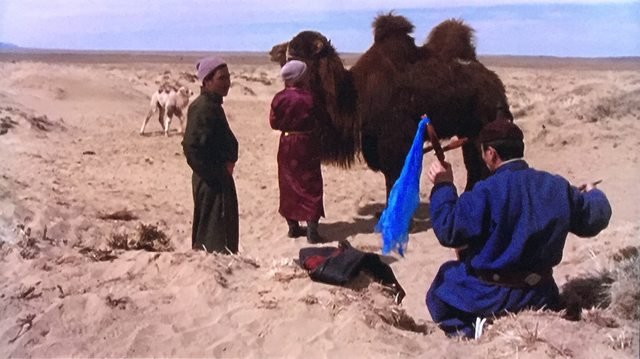THE STORY OF THE WEEPING CAMEL [Byambasuren Davaa & Luigi Falorni, 2003] - movie review by Mandibil
The point of art is to give the viewer a change to try other peoples lives on for size. This way of looking at art does not differentiate between medias or formats. A documentary is just as much a piece of art as a fictional story. Fictional stories are really just artificial documentaries, put together to illustrate a prejudice. So with this in mind let us go to the Gobi desert in southern Mongolia and try on for size the life of a Mongolian nomad family.

When one of the family's camels give birth to a white camel, she rejects it. Despite the herders efforts to make them bond, she keeps rejecting it. They attend a ceremony at a shrine where some sort of shaman preys and moans to please the spirits. But to no avail. They send off their two sons to the nearest city to fetch the "violin-player". When he finally gets there, the combined emotions of the violin-player´s music and the young wife's singing, invokes the mother camels feelings and she accepts the calf, gives it attention and lets it drink its milk. It is quite astounding to see the effect the music has on the mother camel - she is literally crying, with tears streaming down her face.

During the plot, we get to see a glimpse of the social structure in this family, their beliefs and their daily life. It is a very simple and pure life they lead and the barren vistas of the desert has an almost purifying effect on me. On the surface we may see these people as poor or "helpless", but they have a rich and meaningful life when you scratch of your own culture and really think about how life is supposed to be lived. Much focus is on the children and the movie is very much seen through the eyes of children (both humans and camels). It is interesting to experience that despite the physical differences to the western modern world, there are so many similarities in raising children and children's desires. The young boy likes to watch television everywhere he goes, but his own family does not own one. The elder argues that it is not good for him, just as parents try to in our culture. A Mongolian nomad culture is as much about conforming to parents traditions and what the parents themselves were told by their parents (who also live with them), as it is everywhere else in human life.

The unbiased and honest presentation of the life of this family gives us a good chance to step into their world and see for ourselves how it is to be a Mongolian nomad. We sense their superstitions and their commitment to their animals and their family and children. They live a spartan life but also very close to each other. They seem happy and content with their life, but they have ambitions and desires when they are children - just like children everywhere else. I personally like documentaries like these that takes you to far away places, people and cultures, that would be difficult or close to impossible for yourself to get to know. That is the essence of documentaries. Only a few times the dialogue is felt slightly staged, but this I can live with.

Rating: 7/10
I like traditions